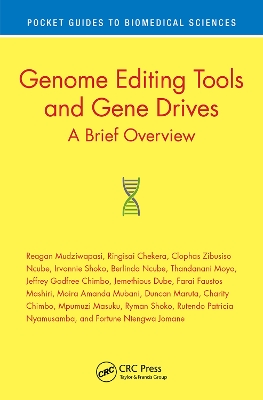Pocket Guides to Biomedical Sciences
1 total work
Genome-editing methods are becoming routine tools for molecular and cell biologists. Such tools include ZFNs, CRISPR, megaTALs and TALENs. These tools are revolutionizing the creation of precisely manipulated genomes to modify the characteristics of organisms or cells. Additionally, gene drives have altered the way we understand inheritance laws. They give us the ability to have total control of the inheritance of traits of choice and importance. This succinct volume summarizes the history, principles and applications – as well as the advantages and disadvantages – of each of these tools and various kinds of gene drives. The book is part of a program to produce books helpful to students and faculties of science at colleges and universities. This volume in the Pocket Guides to Biomedical Sciences series will help demystify these technologies. The book fills the gap between established conventional methods and the novel and exciting newly introduced tools of genome editing and gene drives. It will help young scientists understand the emerging genome-editing tools and gene drives, thereby promoting related research and adoption.
Key Features
- Extensively reviews the current genome-editing tools and gene drives
- Clarifies the targeting mechanisms and specificity of genome-editing tools
- Details many different types of natural and synthetic gene drives
- Highlights concerns with gene drives and genome-editing tools
Related Titles
Brown, T. A. Genomes 4 (ISBN 978-0-8153-4508-4)
Samuelsson, T. The Human Genome in Health and Disease: A Story in Four Letters (ISBN 978-0-8153-4591-6)
Soh, J., et al. Genome Annotation (ISBN 978-1-4398-4117-4)
